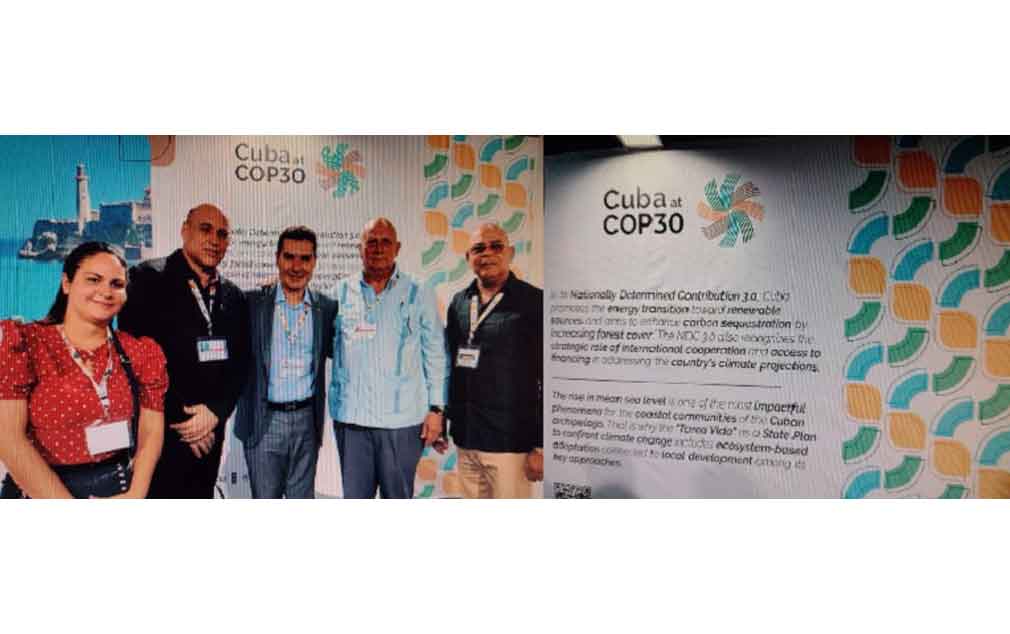Cuba is determined to defend the voice of the Global South at COP30 and demonstrate how science, social resilience, and unity underpin its environmental policy in a global landscape marked by inequality.
This is what the Minister of Technology and Environment, Armando Rodríguez, stated during an extensive interview with the newspaper Inverta, speaking with the conviction of someone who carries decades of scientific experience on his shoulders.
He acknowledges the warm welcome from Brazil and immediately focuses on what he believes is the true heart of the climate battle: inequality.
The Cuban delegation is in Belém with “the voice of the countries of the Global South, of small island states, and of developing nations,” the minister emphasizes, adding that climate change is not only an ecological challenge, but “it becomes an economic and social challenge for countries like ours.”
From this perspective, Havana is presenting the scientific foundations of its environmental policy, and its representative is describing how hazard, vulnerability, and risk studies, developed down to the municipal level, shape strategic public decisions in the face of rising sea levels, extreme hurricanes, and the protection of biodiversity.
With the update of its Nationally Determined Contribution, NDC 3.0, the island has an ambitious program to install 2,000 megawatts (MW) of photovoltaic solar energy, with 200 MW of storage capacity, by 2026.
It is also making commitments such as mangrove reforestation programs, the sustained increase of forest cover, and transformations in energy, agriculture, and transportation.
In the interview, Rodríguez doesn’t shy away from the topic. The United States’ blockade against Cuba “is the greatest difficulty facing Cuban environmental policy because it limits access to technology, funding, and trade.”
Faced with this reality, Cuba sustains its science with its own resources: 50 universities, more than 200 research centers, and a scientific ecosystem that he considers a “victory of the Revolution.”
The minister recalls with emotion the Earth Summit in Rio de Janeiro (1992), when the speech by the historical leader of the Cuban Revolution, Fidel Castro, shook the forum: “For us, that speech is the cornerstone of Cuban environmental policy.”
He quotes it from memory: “Eliminate hunger, not man.” This persistence, he argues, is part of the country’s daily life. “Continuity for us is everyday life,” he clarifies.
At the 30th United Nations Climate Change Conference (COP30) in Belém, where the jungle breathes both concern and hope, Cuba once again presents itself as a small nation trying to speak on behalf of many, betting on science and unity to face a planetary challenge.
IMAGE CREDIT: Minister of Technology and Environment, Armando Rodríguez, with Cuba’s delegation to COP 30 / CUBA DEBATE
[ SOURCE: PRENSA LATINA ]

